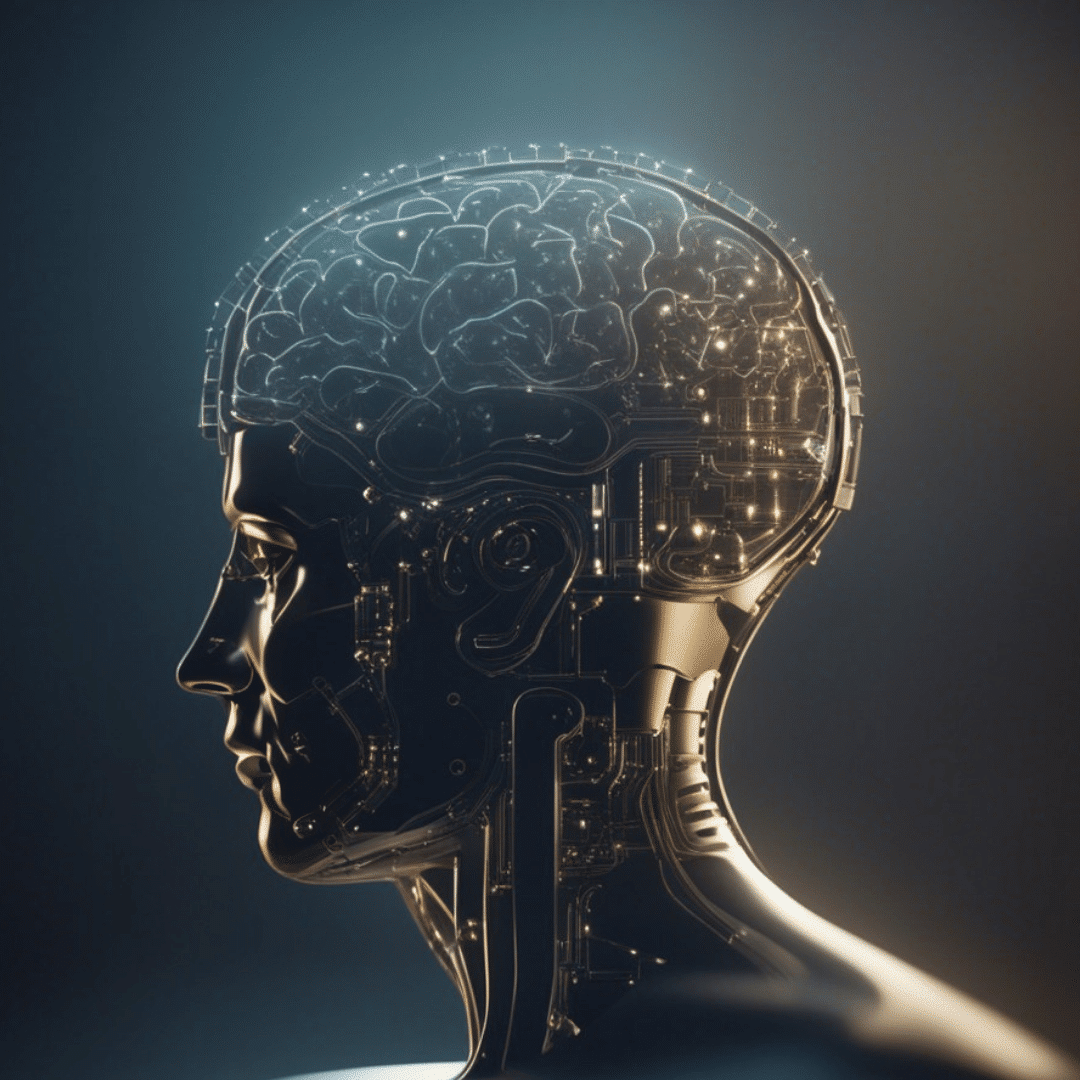The Role of ECS in the Brain: Understanding the Endocannabinoid System and Its Impact on Mental Health
Written by Trevor

Introduction: Exploring the Intricacies of the Endocannabinoid System (ECS) in the Brain
The human body is a complex and fascinating system, with numerous intricate mechanisms working together to maintain balance and harmony. One such system that has gained significant attention in recent years is the endocannabinoid system (ECS). The ECS plays a crucial role in regulating various physiological processes, including mood, appetite, pain sensation, and even memory.
The ECS consists of a network of receptors located throughout the body, with a significant concentration found within the brain. These receptors interact with endocannabinoids – cannabinoids produced naturally by our bodies – as well as external cannabinoids found in plants such as cannabis.
Understanding the intricacies of the ECS in the brain opens up a world of possibilities for researchers and medical professionals alike. By delving into how these receptors interact with cannabinoids and neurotransmitters, we can gain insights into potential therapeutic applications for various conditions.
In this section, we will explore the fascinating world of the ECS within the brain. We will delve into its structure, function, and its role in maintaining homeostasis. Additionally, we will examine how cannabinoids interact with these brain receptors and discuss their potential impact on neurological disorders.
Join us on this enlightening journey as we unravel the mysteries of the endocannabinoid system in our brains and discover its immense potential for improving human health and well-being.
The Key Components of ECS and How They Interact with the Brain
Understanding the key components of the endocannabinoid system (ECS) and how they interact with the brain is crucial in comprehending the effects of cannabinoids on our body. The ECS consists of cannabinoid receptors, namely CB1 receptors and CB2 receptors, as well as endocannabinoids and phytocannabinoids.
CB1 receptors are primarily found in the central nervous system, particularly in areas associated with memory, mood, pain perception, appetite regulation, and motor coordination. These receptors play a significant role in modulating neurotransmitter release and influencing various physiological processes.
On the other hand, CB2 receptors are predominantly located in immune cells throughout the body. They contribute to regulating inflammation and immune responses. While originally thought to be absent from the brain, recent research suggests that CB2 receptors may also have a presence within certain brain regions.
Endocannabinoids are naturally occurring compounds produced by our bodies that bind to cannabinoid receptors. Anandamide and 2-arachidonoylglycerol (2-AG) are two well-known endocannabinoids that help maintain homeostasis by regulating various physiological functions.
Phytocannabinoids are cannabinoids derived from plants such as cannabis. They can mimic or interact with our endocannabinoid system when consumed or applied externally. Examples include THC (tetrahydrocannabinol) and CBD (cannabidiol).
The interaction between these key components of the ECS is complex but vital for maintaining overall balance within our bodies. By understanding how cannabinoids interact with cannabinoid receptors and their impact on various physiological processes, we can gain insights into their potential therapeutic applications for a range of conditions.
In conclusion, exploring the interplay between cannabinoid receptors (CB1 and CB2), endocannabinoids, and phytocannabinoids provides valuable knowledge about how these components influence our brain function and overall well-being. This understanding paves the way for further research and potential advancements in utilizing cannabinoids for therapeutic purposes.
The Influence of ECS on Neurotransmission and Neuroplasticity
The intricate workings of the brain and its ability to adapt and change over time have long fascinated scientists and researchers. One key aspect that plays a crucial role in these processes is the endocannabinoid system (ECS). The ECS, composed of neurotransmitters, receptors, and enzymes, has been found to have a profound influence on neurotransmission and neuroplasticity.
Neurotransmitters are chemicals that transmit signals between neurons in the brain. They play a vital role in various functions such as cognition, emotion, and movement. The ECS interacts with these neurotransmitters at the synaptic level, modulating their release and uptake. This modulation helps regulate the overall balance of neurotransmission in the brain.
Additionally, the ECS has been found to play a significant role in neuroplasticity – the brain’s ability to reorganize itself by forming new neural connections. Neuroplasticity is crucial for brain development, learning, memory formation, and recovery from injury or trauma. The ECS influences neuroplasticity by regulating synaptic strength and promoting the growth of new neurons.
Understanding how the ECS influences neurotransmission and neuroplasticity opens up exciting possibilities for therapeutic interventions. Researchers are exploring ways to target specific components of the ECS to enhance cognitive function or treat neurological disorders such as Alzheimer’s disease or depression.
In conclusion, the influence of the endocannabinoid system on neurotransmission and neuroplasticity highlights its essential role in shaping our brains’ functionality. Further research into this fascinating field may unlock new insights into brain development, learning mechanisms, and potential therapeutic applications for various neurological conditions.
Exploring the Relationship Between ECS and Mental Health Disorders
The relationship between the endocannabinoid system (ECS) and mental health disorders is an area of growing interest and research. Anxiety disorders, depression, schizophrenia, and post-traumatic stress disorder (PTSD) are some of the most common mental health conditions affecting millions of people worldwide.
The ECS plays a crucial role in regulating various physiological processes, including mood, stress response, and emotional well-being. It consists of cannabinoid receptors located throughout the body and endocannabinoids that bind to these receptors.
Studies have shown that dysregulation or dysfunction of the ECS may contribute to the development or exacerbation of mental health disorders. For instance, alterations in cannabinoid receptor expression have been observed in individuals with anxiety disorders and depression.
Furthermore, emerging research suggests that targeting the ECS through pharmacological interventions or natural cannabinoids like CBD may have therapeutic potential in managing symptoms associated with these mental health conditions. CBD has gained significant attention for its potential anxiolytic and antidepressant properties.
However, it is important to note that more research is needed to fully understand the complex relationship between the ECS and mental health disorders. The field is still evolving, and scientists are working towards uncovering more insights into how modulating the ECS could lead to improved treatment options for individuals suffering from anxiety disorders, depression, schizophrenia, PTSD, and other related conditions.
By exploring this relationship further, we can potentially unlock new avenues for developing innovative therapies that target the ECS to alleviate symptoms and improve overall mental well-being.
Can Modulating ECS Function Have Therapeutic Potential for Treating Mental Health Conditions?
The potential therapeutic benefits of modulating the endocannabinoid system (ECS) for treating mental health conditions have gained significant attention in recent years. With the rise of cannabis-based medications and the increasing interest in CBD oil, researchers are exploring the potential benefits these substances may have on mental well-being.
Current research findings suggest that CBD oil, derived from cannabis plants, may have positive effects on various mental health conditions. Studies have shown promising results in alleviating symptoms of anxiety disorders, depression, post-traumatic stress disorder (PTSD), and even schizophrenia.
CBD oil interacts with receptors in the ECS, which plays a crucial role in regulating mood, emotions, and cognitive function. By modulating the ECS function, CBD oil may help restore balance and improve overall mental well-being.
Furthermore, CBD oil has been lauded for its non-psychoactive properties and minimal side effects compared to traditional pharmaceutical treatments. This makes it an appealing option for individuals seeking alternative therapies for their mental health conditions.
While more research is still needed to fully understand the mechanisms behind CBD’s therapeutic effects on mental health conditions, early findings are encouraging. As scientists continue to explore this field, it is becoming evident that modulating ECS function through cannabis-based medications like CBD oil holds great promise as a potential treatment option for various mental health conditions.
Conclusion: Unraveling the Intricate Connection Between ECS and Mental Well-being
In conclusion, the intricate connection between the endocannabinoid system (ECS) and mental well-being cannot be overlooked. The ECS, consisting of brain receptors, cannabinoids, and neurotransmitters, plays a crucial role in regulating various aspects of our mental health.
Through its interaction with these components, the ECS helps maintain balance and homeostasis within the brain. It influences our mood, emotions, stress response, and even cognitive function. When the ECS is functioning optimally, it promotes a state of mental well-being.
However, disruptions or imbalances in the ECS can lead to mental health issues such as anxiety disorders, depression, or even neurodegenerative diseases. Understanding this connection allows us to explore potential therapeutic interventions that target the ECS for managing these conditions.
Research into cannabinoids and their effects on the ECS has shown promising results in alleviating symptoms associated with mental health disorders. By targeting specific receptors within the brain, cannabinoids can modulate neurotransmitter release and restore balance within the ECS.
As we continue to unravel the complexities of this intricate connection between the ECS and mental well-being, further research is needed to fully comprehend its mechanisms and potential therapeutic applications. Nonetheless, it is evident that nurturing a healthy ECS is essential for maintaining optimal mental health.
Incorporating lifestyle factors such as exercise, stress management techniques, and a balanced diet can support overall ECS function. Additionally, exploring safe and regulated cannabinoid-based therapies under medical supervision may offer new avenues for treating various mental health conditions.
By recognizing and appreciating this complex relationship between our endocannabinoid system and mental well-being, we can pave the way for innovative approaches in promoting psychological wellness for individuals around the world.
Enjoy This Article?
If you enjoyed this article and want to check out our Instagram page for a better look at all products. Sign up for our newsletter and follow our Twitter Page for a more posts like this and exclusive deals








